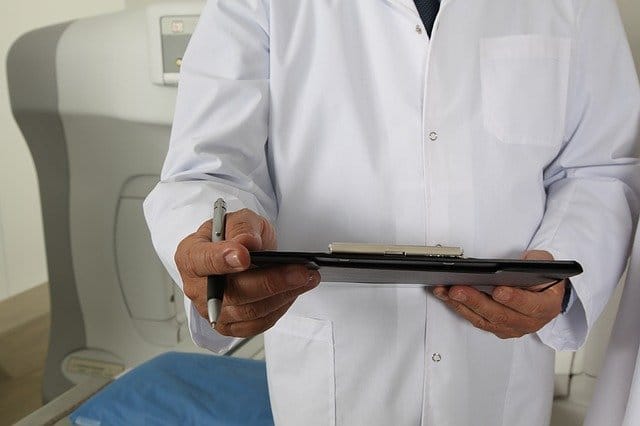When you know you have got a problem with alcohol, you might be tempted to try to recover on your own, without any professional treatment.
For many people up and down the country, the idea of attending a drug and alcohol rehab centre scares them.
Whilst attending rehab and getting access to professional treatment can seem daunting at first, it is by far the most effective way of recovering.
However, if you are too scared and anxious to reach out to a professional rehab facility then you are not alone.
In addition to this, spaces in rehab facilities are also very limited, meaning that if you opt for professional rehab then you might be waiting weeks or even months for a space to become free.
Rehab centres are also very expensive, and unless your insurance is able to cover them, it could cost you thousands of pounds.
This is why lots of people are tempted to recover on their own, which is also now dubbed ‘DIY recovery.’
Whilst recovering on your own from a moderate or mild addiction to alcohol is possible, anyone with a severe addiction will need to attend professional treatment. Let’s take a look at the statistics below.

A study carried out by the Addiction Research Foundation [1] found that approximately 77% of all individuals who had recovered from an alcohol addiction did so without help or treatment.
In addition to this, a large percentage of 38% admitted that after they had recovered, they went on to drink moderately after recovering from their addiction issue [1].
Nevertheless, it is important to understand that anyone with a severe addiction to alcohol, or any other substances for that matter, will need to attend professional treatment in order to recover.
Anyone with a severe addiction will also need to attend a medical detox [1].
In fact, of those who did receive treatment for their alcohol addiction, 60% reported being completely free of alcohol dependence when they left treatment [2].
If you suffer from a severe addiction to alcohol, then your body will be physically dependent on the substance, meaning that you will need to undergo withdrawal before you can recover.
Withdrawing from alcohol means that you need to undergo a medical detox, which does involve some unpleasant withdrawal symptoms.
This is why it is important to withdraw in a treatment centre, so your symptoms can be monitored.

Alcohol withdrawal occurs when you stop taking a drug that your body is physically dependent on.
Alcohol withdrawal is your body’s way of overcoming the substance that you are addicted to, once you stop taking the substance altogether.
When you abuse any substance for a prolonged time, your body and brain becomes dependent on it to survive.
Hence, when you stop taking the substance your body needs and craves, this will trigger withdrawal symptoms.
This is because your body has created a new ‘norm’ and is now struggling to function without it. You need to withdraw from taking the substance in order for your body to overcome its dependence on it.
This period of adjustment can be really unpleasant, as your body is screaming out for help. However, once you have overcome this withdrawal period, your body will no longer be dependent on alcohol.
Withdrawing from a severe addiction can put your body under a huge amount of strain, which is why it is always important to withdraw in a medical setting.
In fact, withdrawing without the right kind of treatment and support can result in some life threatening health conditions. Some of these symptoms are explained below for you.
When someone initially stops taking alcohol, they will experience acute withdrawal symptoms.
This is often common among those who are heavy drinkers, whose bodies are dependent on alcohol in order to cope. When you take that away from them, their body will react.
There are a whole host of acute alcohol withdrawal symptoms that you should expect to experience during this time, including some of the below:
It is therefore recommended that you never attempt to withdraw on your own. Instead, you should seek help from medical professionals.
If your addiction and withdrawal symptoms are deemed acute and less severe, then you might be eligible for a home detox.
Unfortunately, a number of people who withdraw from taking alcohol go on to experience post-acute withdrawal symptoms, otherwise known as PAWS.
PAWS can last for a number of months after you first withdraw from taking an addictive substance.
How long PAWS lasts depends on how severe your addiction was, with some individuals experiencing PAWS for up to a year.
There are a number of withdrawal symptoms associated with PAWS, including some listed below [3]:
As you can see, these withdrawal symptoms can be severe and will need ongoing medical attention.
This is why it is important to engage with treatment services from the offset, as you might need their ongoing support if you are at risk of experiencing PAWS.

Alcohol withdrawal symptoms can become very serious and even sometimes fatal if they are not monitored and treated correctly.
In fact, some minor withdrawal symptoms can escalate very quickly if they are not treated.
This is why it is incredibly important to withdraw from alcohol in a controlled setting. There is no ‘one size fits all’ treatment but below are some common treatment programmes that work well.
Inpatient rehab treatment is when you temporarily move into a rehab treatment facility in order to successfully recover.
By attending inpatient rehab treatment, you will get access to 24/7 and around the clock care and support from trained professionals.
You can enter inpatient rehab for a medical detox, which will take approximately 10 days depending on the severity of your addiction or alcohol or other substances.
From then onwards, you will remain at the treatment facility where you will receive therapy treatment for any coexisting mental health conditions.
Outpatient rehab treatment allows you to remain in the comfort of your own home during your treatment and is primarily for those with less severe drug and alcohol addictions.
You will get to remain living in the comfort of your own home, surrounded by your family and your friends for support.

If you find yourself addicted to drugs or alcohol, then you will need to attend therapy in order to overcome your psychological addiction.
You will most likely need to attend therapy for a number of months, or even sometimes years after leaving formal treatment in order to remain in recovery.
Some people even spend their entire lives in therapy treatment.
Your therapist will want to get to the root cause of your addiction issues, which can sometimes be underlying mental health conditions or traumas.
There are a range of different therapy techniques, including cognitive behavioural therapy, motivational interviewing and holistic therapy.
Support groups are a great option when you are recovering from an addiction to drugs or alcohol.
There are a range of different support groups throughout the UK, including Alcohol Anonymous and Al-Anon which both offer an open and free environment to discuss your addiction issues and recovery goals.
You will most likely gain access to these support groups after you have undergone your initial recovery and addiction treatment, meaning after you have successfully detoxed and withdrawn from alcohol.

If you are wishing to recover from an alcohol addiction, or any other addiction for that matter, then you should speak to a member of the team at Rehab 4 Addiction.
Our team is on hand with friendly, non judgemental and free advice on where to gain access to treatment, so that you do not attempt to recover on your own.
Our team will never judge you and will never force you into treatment. They are simply here to provide you with the information you need in order to make an informed decision.
To speak to a member of our team, give us a call on 0800 140 4690 or by searching for us online at www.rehab4addiction.co.uk.
[2] https://fingertips.phe.org.uk/profile/local-alcohol-profiles/supporting-information/Treatment2